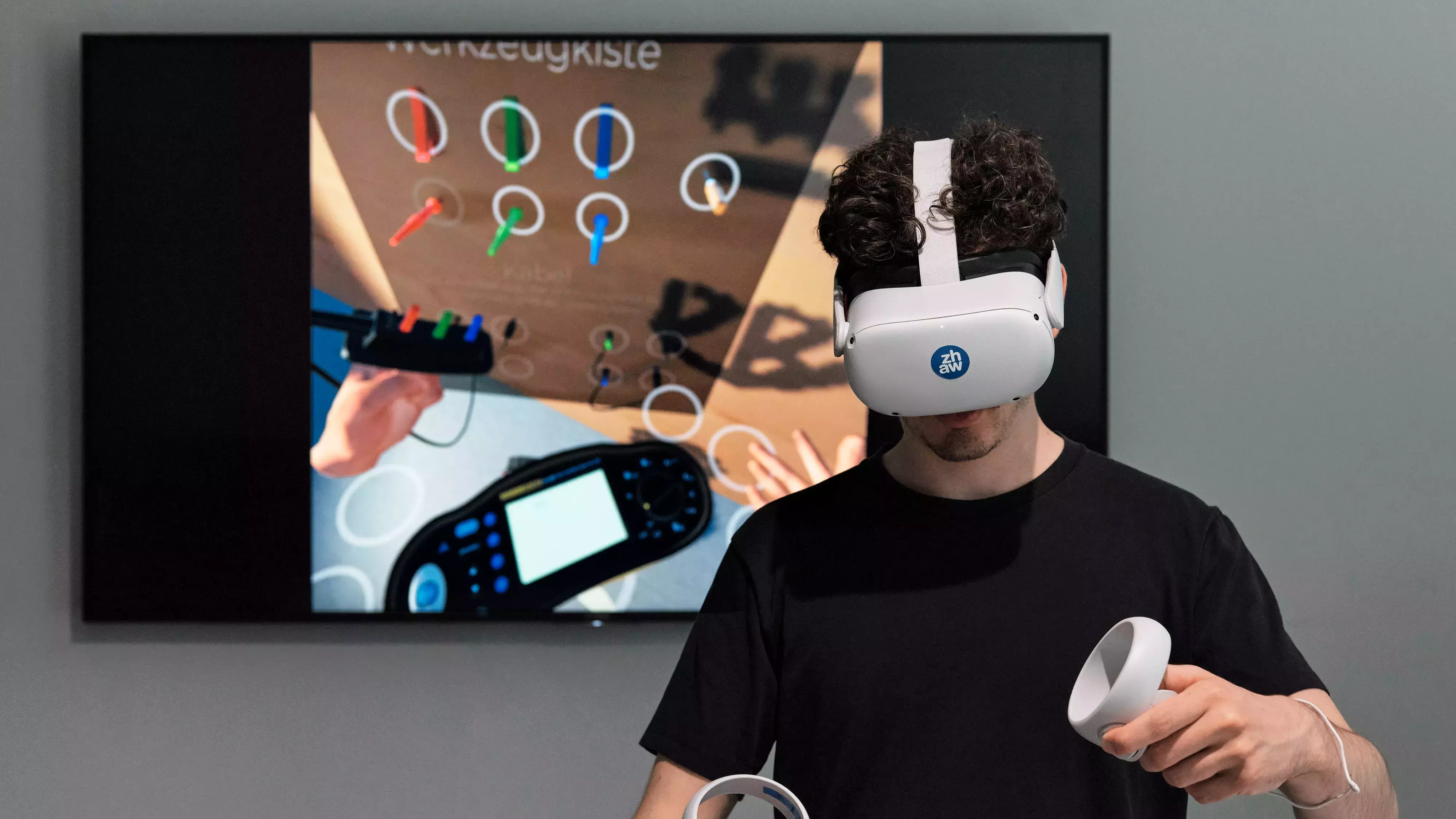Higher Apprenticeship Grades With Virtual Reality
According to a recent study by ZHAW and PH Zürich, virtual learning environments are a promising vocational training approach. Apprentices in the electrical industry using virtual reality software to prepare for their final exams improved by one grade point.

Many companies in Switzerland offering apprenticeships find it difficult to provide apprentices with enough situations in which they can learn and practice the tasks they need to master. Technology-supported worlds of experience based on virtual reality (VR) may be a promising solution to enhance vocational training. However, VR is rarely applied systematically in apprenticeship training, which can be attributed, among other things, to low levels of experience and research. Therefore, in a joint project of ZHAW and PH Zürich, a VR learning environment for apprentice electricians has recently been developed and evaluated. As project partners, Bandara, BKW Building Solutions, the Effretikon Electrical Education Center, and the professional association EIT.swiss provided technical expertise. The project was supported by the Digitalization Initiative of the Zurich Higher Education Institutions (DIZH).
Virtual Reality for an Additional Grade Point
ZHAW has developed the prototype of a VR learning environment for the project. With it, learners can practice the testing of an electrical installation in a virtual garage using VR goggles. PH Zurich contributed the didactic concept. "We know that learners are often strongly challenged in complex technical processes – whether real or virtual. They depend on guidance to structure the experience. That's why we added a help and question system as well as game elements to make it an effective VR learning environment," educational scientist Martin Berger, PH Zürich, explained.
In a field study, the performance of 68 Swiss assembly electricians in the final year of their apprenticeship scheme was compared before and after exam preparation: While 35 apprentices used virtual reality to prepare for the practical exam, the other 33 employed more traditional learning methods. It was found that the assembly electricians, in particular, benefited from the VR approach. In the final exam, they were able to improve by almost a whole grade point compared to the apprentices who had studied without VR. One of the project’s co-leaders, Thomas Keller of the ZHAW School of Management and Law, concluded: "We were very pleased with the result. It underlines the potential of VR to improve equal opportunities in basic vocational training."
Enhancing Vocational Training
VR allows learners to learn and experiment with various challenging or even potentially dangerous hands-on activities anytime and anywhere. However, the researchers emphasized that VR should in no way replace hands-on practice and contact with instructors. "We see virtual reality solutions as a valuable addition to basic vocational training. The project findings indicate that didactically sound virtual experience and learning environments can support operational learning and, in the process, be effective for building professional action competencies," according to researcher Elke Brucker-Kley, ZHAW School of Management and Law. The VR learning environment prototype is currently being developed further by Bandara for the benefit of the more than 300 apprentices of the Bauman-Kölliker Group.
Contact
-
Elke Brucker-Kley, Senior Research Associate, ZHAW School of Management and Law, phone: +41 (0)58 934 66 85, email: elke.brucker-kley@zhaw.ch
-
Dr. Martin Berger, educational scientist and lecturer, Zurich University of Teacher Education (PH Zürich), phone: +41 (0)43 305 61 05, email: martin.berger@phzh.ch
-
Prof. Thomas Keller, Professor of Business Information Technology, ZHAW School of Management and Law, phone: +41 (0)58 934 78 61, email: th.keller@zhaw.ch
-
Valerie Hosp, Communications, ZHAW School of Management and Law, phone: +41 (0)58 934 40 68, email: valerie.hosp@zhaw.ch
-
Communications, Zurich University of Teacher Education (PH Zürich), phone: +41 (0)43 305 64 94, email: kommunikation@phzh.ch